How good is it?
A Century of Chinese Cinema - Spring in a Small Town
Collapse
Announcement
Collapse
No announcement yet.
X
-
Tags: None
-
Hello there,
To be honest with you bb I can't really answer your question as I've not seen the original. I have, however, seen the 2002 remake by Tian Zhuangzhuang which I thought was pretty good. According to wiki the remake is faithful to the original. The link is below.
Having had a look at the BFI's film listing for the festival I see that Tian Zhuangzhuang's Blue Kite is featured. It's well worth seeing but imho Chen Kaige's Farewell My Concubine which deals with similar themes (the big taboo backdrop is the Cultural Revolution) is the better film.
It is also being featured. It was also the first Chinese film I saw (if you exclude Enter the Dragon!) All of Chen's films I think are worth investigating - so too Zhang Yimou's - whose Hero ( a beautifully designed and filmed movie I think), Red Sorghum and Story of Qiu Ju are also being exhibited. I'd also recommend Zhang's Raise the Red Lantern and Shanghai Triad - and I'm somewhat surprised they don't feature at the festival - but hey I'm not an expert!
The list includes other films I've had the privilege of seeing. These include Infernal Affairs (which was remade as The Departed by no less than Martin Scorsese) , Mountain Patrol ( a beautiful, haunting and casually brutal film), Devils on the Doorstep (a world war 2 drama which earned its director / actor Jiang Wen a ban for being too sympathetic in his portrayal of the Japanese), Chungking Express and In the Mood for Love (by Wong Kar Wai) and Platform and Still Life ( by Jia Zhangke)
These directors seem polar opposites. Wong is into opulent visuals, lush music - indeed we're bordering almost on Douglas Sirk melodrama. I'd also recommend Wong's 2046, Days of Being Wild and The Ashes of Time (these 3 films feature the actress Maggie Cheung) Jia on the other hand is into real life / lo tec documentation of the apparently mundane- featuring big ensembles. Could he be the Chinese Robert Altman? Anyway - I think they make great films although both have received very mixed reviews...
Visionary or Boring - you decide !!
Finally - two other directors worth considering: Feng Xiaogang whose Banquet is being shown at the BFI. It is inspired by Hamlet. This was panned at its release and I remember vividly a girl at a store in Guangzhou circa 2007 telling us that the film was ... (it rhymes with Pitt) Anyway having seeing it later I'd humbly suggest that she was mistaken Other films of his that are worth checking out are Aftershock (about the massive Tangshan Earthquake of 1976) , Assembly - (which is an interesting Chinese take on the Korean War ) - and "Back to 1942" - (a film about the Sino -Japanese War in which you sense the Powers that Be have had the final say... )
Other films of his that are worth checking out are Aftershock (about the massive Tangshan Earthquake of 1976) , Assembly - (which is an interesting Chinese take on the Korean War ) - and "Back to 1942" - (a film about the Sino -Japanese War in which you sense the Powers that Be have had the final say... )
The other director is Lou Ye ( not to be confused with Lou Costello ) whose Suzhou River I'd thoroughly recommend. Influenced by Film Noir it displeased the Authorities... Undaunted a subsequent film was Summer Palace - a film about 1980s student love, lust and ambition that terminates at Tiananmen Square... No prizes for guessing how that went down...
) whose Suzhou River I'd thoroughly recommend. Influenced by Film Noir it displeased the Authorities... Undaunted a subsequent film was Summer Palace - a film about 1980s student love, lust and ambition that terminates at Tiananmen Square... No prizes for guessing how that went down...
There's plenty of good stuff to see I think bb. Kudos to the BFI for laying it on - and I hope you and others have a great time there.
Best Wishes,
Tevot


 Last edited by Tevot; 22-06-14, 02:31.
Last edited by Tevot; 22-06-14, 02:31.
-
 bb
bb
Dear Tevot,
Thank you for such an illuminating answer about Chinese cinema, which we were not expecting at all! We shall definitely be following up on all your recommendations!
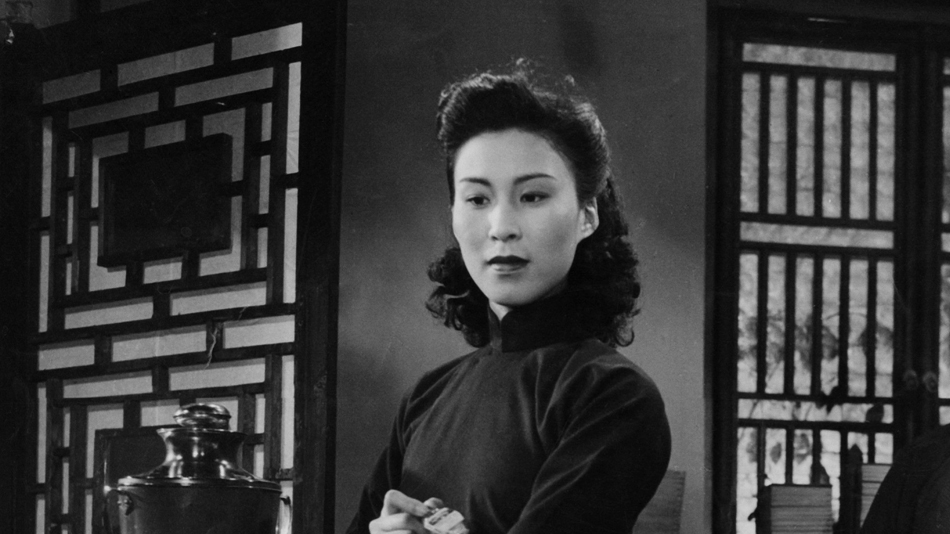
BFI - A Century of Chinese Cinema
As far as the original 1948 Spring in a Small Town is concerned, it is an understated masterpiece. Fei Mu was quoted as saying:
Noah Cowan argues that it is precisely these techniques, along with his radical use of dissolves within scenes and a strange hallucinatory voiceover, that have given the film its international reputation and remarkable resonance in modern and contemporary cinema. So it is good, although according to your taste, not necessarily that good! Electric shadows?"In order to transmit the gloomy mood of old China I have undertaken a presumptuous and daring experimentation with my work, relying on the long take and slow motion, without seeking further craft. As a result the film comes across as being too dull."
BFI - Electric shadows
The Guardian - Spring in a Small Town review – powerful, exquisite drama‘A Century of Chinese Cinema’ is a title that is inevitably, and immediately, subject to skepticism. The doubts begin with ‘Century’ as there are several possible dates that could serve as a starting point for this centenary. Cinema first came to China with a Lumière roadshow in 1896; the first Chinese-produced film appeared in 1905; the first movie theatres opened in Beijing in 1907; the first film studio was founded in Shanghai in 1909; while the first narrative films that approached something like feature length (both sadly now destroyed) appeared in 1913.
The fate of those landmark first films would be shared by hundreds of other examples of early Chinese cinema, swallowed up in the social and political chaos that engulfed China in the first decades of the 20th century. That chaos leads us to the second questionable ‘C’ – ‘Chinese.’ East Asia’s tumultuous social and political history resulted in a uniquely dispersed model of film production, one that defies the film-historical myth of a unified ‘national cinema’ focused on a single location. For this reason, critics and scholars have tended to isolate major filmmaking centres – namely the Mainland, Hong Kong and Taiwan – and champion these as distinct national cinemas unto themselves. Yet while there is certainly a great degree of logic to this approach, recent scholarship has done much to reveal the remarkably fluid movement of Chinese filmmakers between these three regions, from cinema’s very beginnings to the present day.
It’s this complex and continuing exchange between regions that this major, five-month film season – eclectic, occasionally eccentric, and with not a thought of being comprehensive – seeks to explore. In June, the BFI looks at 'The Golden Age' and 'A New China'. Chinese cinema is rich beyond belief, and we hope that the dialogue we have begun here will help to open potential new pathways of scholarship and cinematic discovery. Regarded as the finest work from the first great era of Chinese filmmaking, Fei Mu’s quiet, piercingly poignant study of adulterous desire and guilt-ridden despair – now restored – is a remarkable rediscovery. After eight years of marriage to Liyan – once rich but now sickly and almost suicidally apathetic following a long, ruinous war – Yuwen does little except deliver his daily medication. A surprise visit from Liyan’s friend Zhang re-energises the household, the invalid included. Liyan’s young sister is not alone in her excitement over the much-travelled guest; Yuwen knew him before her marriage… Eliciting a great performance from Wei Wei as Yuwen, whose wistful voiceover offers insights into her conflicted feelings, Fei creates a tense, sensual chamberwork steeped in suspicion and suppressed longing, deep resentments and half-spoken truths. The deft use of locations, dissolves and camera movements makes for a fraught, febrile mood of hesitant passion, entrapment and ennui; sophisticated cinematically and psychologically, the film eschews sentimentality for something far more beguiling. Writing in 'The Guardian', the film critic Peter Bradshaw concludes thus:
" ... For reasons no one can explain, everyone is drawn to taking walks by the ruined city wall. Perhaps there is something about damaged limits or vulnerable barriers. There is a captivating subtlety in the glances, smiles, brief hand-holdings; it has an inspired emotional fluency and candour. This is a film to fall in love with."
If you cannot get to the cinema, however, here is the film online:
BFI iPlayer - Spring in a Small Town
YouTube - Spring in a Small Town (1948) Eng Subs
Essential viewing, Tevot!
Best wishes,
bb et al.
PS Sacrificed Youth, too!
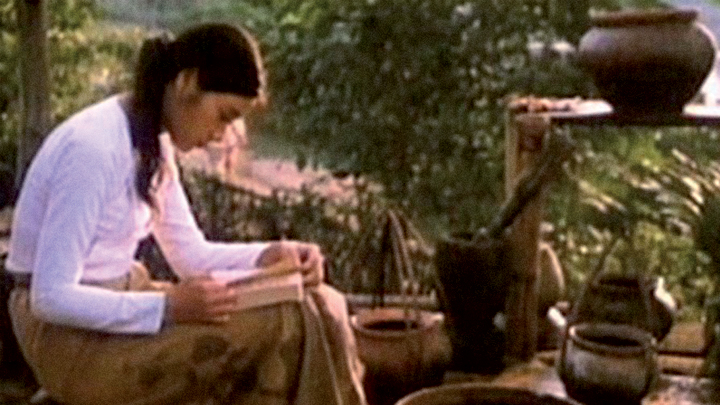 Last edited by Guest; 03-08-14, 15:50.
Last edited by Guest; 03-08-14, 15:50.
Comment
-
 bb
bb
We had a great time, Tevot! Yesterday, we finally got to see Farewell My Concubine, which has come to define the Chinese epic – bold colours, exquisite compositions, decades of history told through emblematic characters, and resonant cultural signifiers, all with a garnish of political and sexual scandal. It also introduced Leslie Cheung, one of the most important screen actors of the last century. Cheung plays Dieyi, an opera performer who as a youth is brutalised into accepting his fate as a boy turned into a girl in order to play female roles on stage.Originally posted by Tevot View Post" ... Having had a look at the BFI's film listing for the festival I see that Tian Zhuangzhuang's Blue Kite is featured. It's well worth seeing but imho Chen Kaige's Farewell My Concubine which deals with similar themes (the big taboo backdrop is the Cultural Revolution) is the better film."
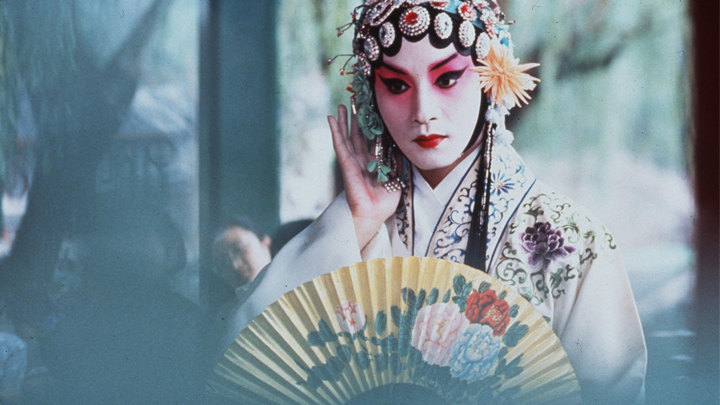
Unfortunately, Chen Kaige boosted the part of Juxian, preventing the film from dealing with Dieyi's homosexual feelings for Xiaolou, leaving a dent in psychodramatic credibility.
Comment
-
Hello there,
Many thanks for your post bb and your comments on both Springtime in a Small Time and Farewell My Concubine. Pleased to read that you had a great time at the Festival
I was very interested to see your comments about Farewell My Concubine. It has been a few good years since I last saw it - and given your views I'll have to make an effort to dig it out again.
Why would Chen Kaige downplay the homosexual element in his film/script? I think the answer is fairly straight forward (no pun intended) He wouldn't wish to fall foul of his audience - be it cinema goers or Communist Party officials imho. Remember many things are taboo in China. Still.
A further irony is that Leslie Cheung (who played Dieyi) was himself homosexual. As a film and pop star (see link below) he had imho to act for his audience of admirers - and not give the game away. That suited everybody - although in the long run sadly not Leslie Cheung himself. In the end it got too much for him.
On a slightly lighter note I would also recommend the following films :-
Zhang Yimou's "Flowers of War" (which features Christian Bale) It got mixed reviews - but I was pleasantly surprised by it.
Jia Zhangke's "Touch of Sin" Banned in China at the moment. Why? It's a co-production with Japan - and it deals with the violent and corrupt underbelly of present day China. (Bits of it remind me oddly enough of "Get Carter") - Not for the faint hearted!
Another of Jia's films that won plaudits was "World" - a drama -documentary subtitled "Love and Loneliness in a Theme Park"
A version of it is on You Tube :- https://www.youtube.com/watch?v=-UentCQ98n4
Best Wishes,
Tevot
P.S. Happy Watching !!
Comment
-
 bb
bb
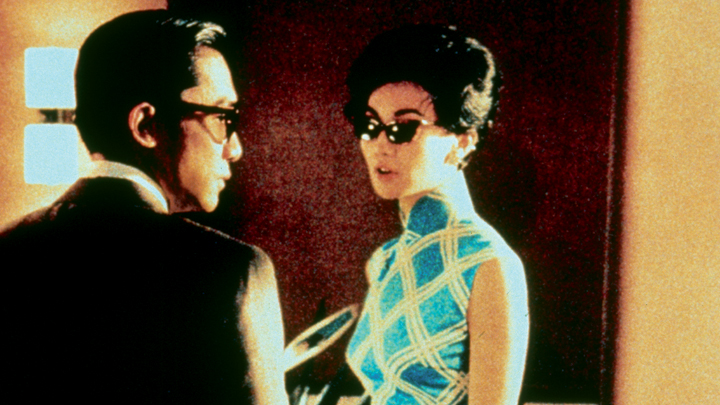
BFI - A Century of Chinese Cinema: New Directions - In the Mood for Love
Thank you for the masterclass, Tevot! How come you know so much about Chinese cinema?
Comment
-
Hello again,
Very much appreciate bb the photo of Maggie Cheung above And for the sake of balance Tony Leung cuts a fine figure too
And for the sake of balance Tony Leung cuts a fine figure too
I've lived and worked in China for the best part of 10 years - and one of the positives is an abundance of bootlegged DVDs sold here for a fraction of what you'd pay for in the UK. As a consequence I've indulged myself and have literally thousands of them - US, British, French, German, Spanish, Chinese, Japanese, Korean and so on...I'm very grateful for that... although transporting them may very well prove problematic!
Also around the time of the Oscars and film festivals ( Venice, Cannes, Toronto, Berlin etc) a lot of films become available. There's a lot of chaff to sort through obviously - but there is much quality to admire.
I wouldn't consider myself an expert and of course my views / recommendations should be viewed as being subjective and taken with a pinch of salt. However being here has exposed me to hundreds of films that had I stayed in the UK I wouldn't have had the opportunity to consider or afford even seeing. For that I'm very grateful.
Much of the fascination with Chinese films is seeing how they evade censorship - many of the "safe" historical epics use allegory and metaphor for example. Be prepared to read between the lines! Others in documentary style are deadpan and invite the audience (if still awake and should they wish) to form their own opinions. That in China is okay as long as you don't express them
(A further irony is, of course, that many banned films often are still downloaded / burned or cross the border via Hong Kong)
I also once met Chen Kaige (the director of Farewell My Concubine and others) who attended a Parents' Evening with his wife - the actress Chen Hong ( I, for my sins, teach...) A tall, powerful, humorous and intelligent man. I was star-struck... There are rumours that he is working in the US on some project. That would be interesting to see.
I love film (basically because I'm lazy !!)
There is, however, so much beyond Hollywood (although that's not too bad)
Some websites for anyone interested in film beyond our shores:-
Best Wishes,
Tevot
Comment
-
 bb
bb
If this was merely the first century of Chinese cinema, we have much to look forward to in the second!
BBC News - Is it a golden age for Chinese cinema?

BFI Player - China on FilmLast edited by Guest; 31-10-14, 15:04.
Comment
-
Any cineastes out there may be interested in this survey of 100 Mainland Chinese Films that featured in an April 2014 edition of Time Out Beijing.
It is subjective, puzzling but also deeply informative imho. I particularly like the 'who voted' section in which the panellists explain their choices.
Happy Reading (the act - not the place ;-)
Tevot
Comment
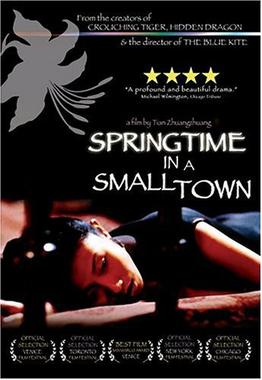




Comment